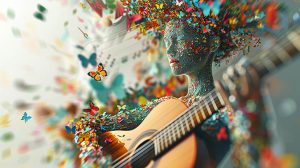
The Benefits of the Ear to Instrument Connection
I recently watched a video performance by the amazing classical pianist Yuja Chang. I’ve seen her memorizing motion and heard her virtuosic playing before, but something hit me after seeing
Categories:
Categories:
More and more often I see musicians hating on artificial intelligence. I think the same can be said for artists in general. And I think that is a shame given the tremendous benefit Artificial Intelligence in music continues to bestow upon us day after day.
Hate always follows the adoption of a brand new technology. The printing press, the telephone, the automobile, TV, and the Sony Walkman are just a few examples of technology that would spell the end of civilization as they knew it. Did it?
Musicians were very suspicious of the synthesizer when they came out in the late 60s. These machines will cost musicians’ jobs, they will dumb down musicians by making music performance easier, they will scrub out emotion from music, and so on. Did any of that happen? Yes, of course. There were musicians who were replaced by synthesizers, some that used them as artistic shortcuts, and others who created emotion-less electronic garbage.
Progress will always change what we know and do today but those changes I described above cleaned house a bit and elevated not all, but much of music. Synthesizers and computers have proven to be a massive net gain for musicians. So will artificial intelligence in music. Take a look at this article on an AI-generated thought on transcribing solos and this one on how to be a better jazz musician. Remember that these are all from my Jazz Master Chat which is simply referencing things said my the jazz masters I’ve interviewed over the years.
So here we go with some common fears about AI.
It will replace musicians, it will allow non-talented individuals to create good music, and it will expropriate the original work of others. Let’s take a careful look at each one of those.
It is a cold hard fact that new technology replaces those who do their job less efficiently and more expensively than the new tech. But that’s a good thing for everyone, even the guy who got replaced.
Farmers throughout history have been replaced by mechanization and more efficient methods of farming. Most of those who were replaced got higher paying jobs in factories and most probably worked fewer hours. Those who stayed as farmers benefited from the new technology that made their work less back-breaking. We have a hard time seeing it at the time but the rising water raises all boats.
Will AI replace musicians? Some–those at the margin who don’t perform or compose better than the machine. But most musicians will learn how to use AI to elevate their music just like musicians learned how to use synthesizers and computers to elevate their music.
Yes it will, but what’s the problem? I hope you aren’t a musician simply because it makes you feel more important than non-musicians. Because of AI image generators like Dali and Midjourney, I can finally create something interesting, and it costs me almost nothing. AI leveraged my almost zero visual artistic talent a million-fold!
AI will do the same for musicians. Remember what Vern told his brother-in-law Eddie Morra in the movie limitless as he handing him a tablet of NTZ-48. This pill unlocks more of your brain’s power. Verne told Eddie, “It works better if you’re already smart.” (which Eddie was.)
That’s how to look at new tech and especially AI. It’s a tool to boost your abilities, whatever your level.
I am not referring to deep fakes or other direct imitations of others. I am referring to the source for the predictive type of AI we have now. For the moment at this early part of the AI evolution, the data (source) that is used is the entirety of the public world wide web. I think the word “intelligence” in AI is misleading. AI is not actually thinking. It is combing through an unfathomable mass of information and then using some of the most powerful computer power on earth to calculate and predict what we want returned to us that satisfies our request.
Think about what is within the public world-wide web. Your social media posts including forums and comments, books, content from Youtube, images, music, academic papers, news sites, podcasts, and everything else it can scrape from the Internet. In fact, this post will be soon added to the Chat GPT data set. So will the original music video I posted to Youtube a couple days ago. urces for the AI data set include MIDI files, social media, sheet music, and non-protected videos. As far as I can tell, Open AI (by far the largest of the Large Language Models like Chat GPT) does not use copy written sources like Spotify, Apple Music, Soundcloud, and other similar protected sources.
Now, using the entirety of the Internet is not very efficient, and I believe that within the next five years (probably sooner) this model will be replaced by more of a thinking machine. That should ease privacy and legal concerns. Instead of the AI regurgitating what it scrapes within its data set, it will form new connections on its own. It will need some sort of context to even know what “song” or “jazz”, or tempo means, but it will be more of a creating machine.
I think the future will look back at current artificial intelligence in music and smile at how inefficient and primitive it is.
Until that time, AIs will learn from the music you independently publish on the web. Put this into a visual context where AI is using the art it finds online to create, say, a man looking out a window in the style of Vermeer. Is this AI-generated image a threat to the actual work of Vermeer? Is this imitation devaluing the work of Vermeer? I think not. If someone tries to somehow pass this off as an original Vermeer, that’s fraud and we already prosecute people for that.
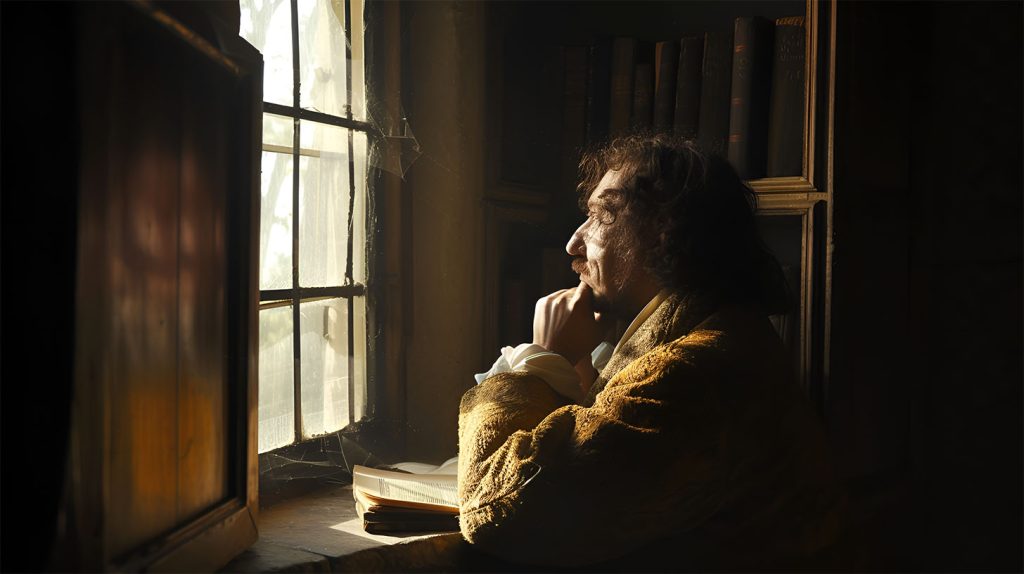
Use the entire catalog of my original music as a dataset and compose some music. I would love to use that AI myself, and I have no problem if another musician (or non-musician) creates something using it.
Remember the rising water lifting all boats I mentioned earlier? If I have a problem with someone creating music sounding like me using a computer, I best get better at making music–music that expresses me with emotions that the imitating machine can’t reproduce.
Marc Andreessen is a remarkable entrepreneur and partner of a very successful Silicon Valley venture capital firm. Oh, and he invented the web browser as you know it. He wrote what I think is a brilliant defense of AI. Maybe not so much a defense of AI, but a rebuke of the unfounded fears of AI. It is called Why AI will Save the World.
While you ponder Mr. Andreessen’s perspective on AI, honestly answer what threat is the current iteration of artificial intelligence in music? Leave a comment with your thoughts.
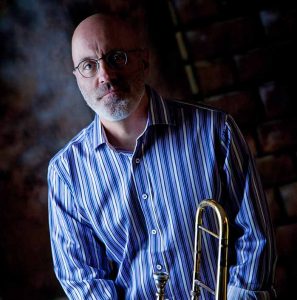
Trombonist, author, marketer, & tech guy
Share this post…

I recently watched a video performance by the amazing classical pianist Yuja Chang. I’ve seen her memorizing motion and heard her virtuosic playing before, but something hit me after seeing
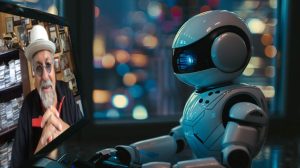
I have created a AI chatbot called Jazz Master Chat that draws from 75 hours of interviews from my Jazz Master Summit event a couple of years ago. I interviewed

What is jazz improvisation? Let’s first define what I mean by jazz improvisation. Jazz improvisation is a spontaneous conversation, but instead of words, we use notes. Look at two possible
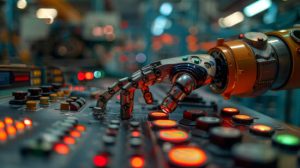
My recently turned 18 year old son is a passionate photographer He 8217 s got himself a little business

A couple weeks ago I sent Richie Beirach a YouTube clip from the movie Whiplash as a bit of
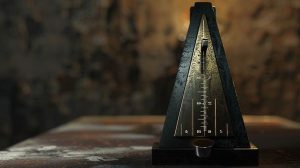
I originally meant to write this as a reply to a comment Richie Beirach wrote on my blog But
Tools for helping musicians at all levels learn about jazz and play to their full capability.
Web design and marketing by:
Michael Lake @JazzDigitalMarketing.com
This is just a fake book example for the type of website I can build for you. Just trying to use a little humor here!